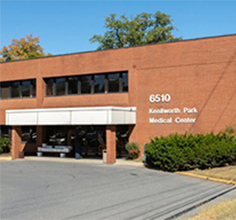
Situated on either side of the spine, the kidney is a vital, bean-shaped organ responsible for a myriad of functions, including filtering waste and excess fluids from the blood, regulating electrolyte balance, and producing hormones that help control blood pressure and red blood cell production. However, this intricate balance can be disrupted by various factors, leading to kidney disease.
In this brief article brought to you by Southern Maryland Medical Group, we take a quick look at triggers as well as three early warning signs of kidney disease. If you suspect you have kidney disease, then visit a licensed primary care physician as soon as possible. Residents in the area can call Southern Maryland Medical Group to schedule an appointment today.
From filtering and cleansing the blood to regulating fluid balance, electrolytes, and blood pressure, the kidneys quietly do a lot for the overall health and functioning of the human body. However, the kidney is susceptible to issues that disrupt its delicate balance.
Kidney disease is a condition where the kidneys are damaged and cannot filter blood as effectively as they should. This impairment can result from a range of causes, and understanding these triggers is crucial in both preventing and managing kidney disease.
Recognizing the early signs of kidney disease is crucial for timely intervention and effective management. Paying attention to changes in urination patterns can provide valuable insights into kidney health.
An early sign of kidney disease is often increased frequency of urination, especially during the night. Conversely, some individuals may experience a decrease in the frequency of urination. Changes in the color and foaming of urine can also be indicative of potential issues with kidney function.
When the kidneys are compromised, they may struggle to eliminate excess fluid, leading to swelling, particularly in the legs, ankles, and face. This swelling, known as edema, can be a visible manifestation of impaired kidney function and should not be dismissed lightly.
Fatigue, weakness, and a general sense of lethargy can also be early indicators of kidney-related anemia. Kidneys produce hormones that stimulate the production of red blood cells, which are crucial for carrying oxygen throughout the body. When kidney function is compromised, there may be a decrease in the production of these hormones, resulting in anemia.
Genetics, autoimmune disorders, and certain medications can contribute to the development of kidney disease. Hypertension, or high blood pressure, as well as diabetes and urinary tract infections are also known to contribute to developing kidney disease.
While some of these factors may be beyond our control, awareness and proactive management of risk factors can go a long way in preventing kidney disease. You are advised to visit primary care doctors if you notice any of the mentioned signs of kidney disease.
It’s better to regularly see your primary care physician, not only to consult about symptoms but for routine check-ups as well. Residents in the area can call Southern Maryland Medical Group to schedule an appointment today.
Southern Maryland Medical Group has 3 convenient locations to provide professional medical care services in the Southern Maryland area. Call or schedule an appointment with one of our locations to get medical care help.

5801 Allentown Road, Suite 400 Camp Spring, MD 20746
Phone: 301-868- 0150
Billing Inquiries: 301-552-1270
Fax: 301-868-0243

7500 Greenway Center, Dr #1200 Greenbelt, MD 20770
Phone: 301-486-7580
Billing Inquiries: 301-552-1270
Fax: 301-486-7581

6510 Kenilworth Ave, Ste 1400, Riverdale MD 20737
Phone: 301-618-0771
Billing Inquiries: 301-552-1270
Fax: 301-618-0772